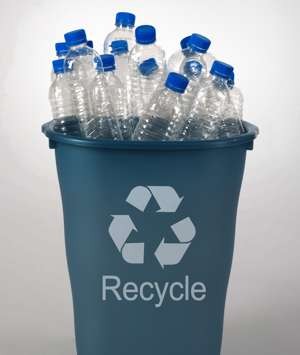Too few of Hong Kong’s listed companies treat sustainability reporting seriously, claims leading advisory agency
CSR Asia, which creates and monitors sustainability strategies, says only around 60 of city’s 2,000 listed companies consider it a strategic necessity

Hong Kong-listed firms, which will be subject to more stringent reporting requirement on their environment, social and governance (ESG) performance next year, should treat the exercise as part of their long term business strategy rather than a once-a-year box-ticking exercise, according to sustainability reporting experts, CSR Asia.
But still too few firms seem to appreciate the benefits of being environmentally and socially responsible in terms of brand and reputation enhancement, t hey add.
Richard Welford, chairman of CSR, which helps companies create and monitor their sustainability strategies, said he believes just 50 to 60 of Hong Kong’s nearly 2,000 listed companies – essentially the Hang Seng Index constituents – consider sustainability a strategic necessity.
The majority of the rest, he fears, will choose to spend the minimum time and money to meet the new requirements by the stock exchange, adding many firms are likely to cite resource constraints as an excuse.
“What worries me is that some of the smaller companies are doing this just as a [box ticking] exercise,” he told the South China Morning Post in an interview.
“They don’t see the bigger picture of why this is good for business and the strategic advantage ... whereas the companies that have been doing this for a while realise this is part of their strategy, brand and reputation.”
Research has shown that companies that those who take ESG seriously, benefit from higher customer loyalty, although that generally does not allow them to charge premium prices, he said.
“However, customers are willing to punish you by stop buying your products if you are perceived to be bad on the environment, bad to your employees or don’t care about their supply chain,” he added.
Following a public consultation exercise, Hong Kong Exchanges and Clearing (HKEX), the operator of the local bourse, last December upgraded the ESG disclosure requirement, in effect since January 2013 – from “recommended and voluntary” to “comply or explain”.
It is now mandatory for listed firms to make general disclosures on their ESG policies, how they intend to deal with the operational risks that have far-reaching implications for the environment and society at large, and whether they are in compliance with laws and regulations, for the financial years starting January 1 or later this year.
As most companies have financial year-ends in December, next year they will need to release the information no later than three months after their latest set of annual reports are released.
For their financial years starting January 1 or later next year, firms will need to further make disclosures on measurable key performance indicators such as targets and achievements.
Failure to comply will require explanations.
Welford, who has helped Asian firms with their sustainability reports for around six years, said it can take companies up to five years to achieve a good ESG track record and feel the reputational benefits, since it takes time to set goals, implement them, besides collecting and presenting the data over time.
“It is a journey that is never ending,” he said of the long-term commitment companies need to make to sustain the benefits.

While brand recognition and reputational benefits are often intangible and difficult to measure, he said cost savings, particularly from materials recycling and energy and water conservation, can be turned into business projects with measurable returns.
He cited the “phenomenal energy-efficiency gains” enjoyed by properties-to-aviation conglomerate Swire Pacific, as well as savings of some HK$5 million a year by Bank of East Asia by encouraging customers to accept digital instead of paper monthly statements.
According to Swire’s 2015 sustainability report, since its property subsidiary Swire Properties implemented an energy management plan in 2001, its energy usage has fallen 16 per cent, despite a 14 per cent rise in gross floor area of its properties portfolio.
Bastian Buck, director of standards at the Holland-based and United Nations-supported non-profit organisation Global Reporting Initiative (known as GRI), which provides a set of globally-recognised sustainability reporting standards for free, said all companies can benefit from a sustainability impact review.

“One strategic reason for adopting GRI is that it allows an organisation to take a step back and look at how it is positioned ... the exercise sometimes presents challenges and issues at board level that may have been forgotten in traditional business conduct,” he said.
GRI is adopted by just over 6,000 firms globally, mostly multinationals, according to Buck.
Of the total, 123 are based in mainland China, and nine of those have their disclosures’ quality assured by external parties, according to GRI data.
Around 40 Hong Kong-based firms have adopted GRI.
Welford said the GRI standards are much more demanding than the ESG disclosure requirements by Hong Kong’s bourse, and is used by investors and stakeholders globally to make performance comparisons.
“GRI is becoming part of companies’ mainstream management tools [for large multinationals to drive efficiencies] much like the way you manage financials on a regular basis,” he added. “These firms are moving away from [the mentality of] writing a report once a year.”
Katherine Lau, general manager of corporate quality and sustainability at the Hong Kong subsidiary of global photocopying, scanning and printing machines supplier Fuji Xerox, said the challenge of implementing GRI reporting lies in understanding the technical terms and picking sustainability items relevant to the firm.
Her firm, a joint venture 75 per cent owned by Japanese photographic firm Fujifilm and 25 per cent by American document management firm Xerox, collects from its customers all old equipment it sold to them and recycles over 99 per cent of the materials.
Fuji Xerox three months ago launched a portal to help companies collect sustainability data. By scanning their electricity bills, customers can transmit their energy usage data electronically to the portal for consumption tracking and reporting.